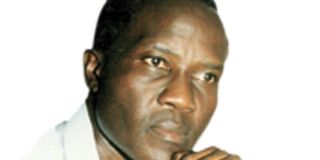So, why did Museveni collect all those thieves?

Alan Tacca
What you need to know:
- When observers began to worry that senior military officers and NRM politicians were helping themselves to State resources beyond their legitimate earnings, there was a kind of sympathetic allowance that perhaps the impoverished Bush War heroes could bend the rules here and there, as long as there was not too much greed, before being subjected to ruthless scrutiny.
The ‘how’ is quite straightforward. When President Museveni’s rule was young, you had this generalised euphoria across roughly three-quarters of Uganda.
Field Marshal Idi Amin, Dr Milton Obote, and finally Okello’s military junta had been overthrown. Twenty years of chaos and outright fascism had apparently been ended. And Museveni and his guerrilla outfit had delivered the final blow.
As a foreign army not directly in power, when the Tanzanians drove off Amin in 1979, many ordinary Ugandans freely gave small personal belongings like portable radios, watches and cash to individual Tanzanian liberators in appreciation. (Later, of course, some of the liberators enforced the gift-giving!)
When Museveni and the NRA seized power in 1986, Ugandans literally gave them the Treasury.
For a time, Mr Museveni could virtually do no wrong. He was talking of beans, plastic mugs and locally made furniture for State House. Ugandans asked rhetorically: How could such an idealist steal money from their Treasury?
All these current incriminatory allusions from Opposition politicians, that a fish starts rotting from the head, would have sounded very strange 30 years ago.
When observers began to worry that senior military officers and NRM politicians were helping themselves to State resources beyond their legitimate earnings, there was a kind of sympathetic allowance that perhaps the impoverished Bush War heroes could bend the rules here and there, as long as there was not too much greed, before being subjected to ruthless scrutiny. As our liberators, we let them steal a little to buy handkerchiefs and proper shoes.
When little grew bigger, alarmed commentators discussing the subject almost always inserted a clause that absolved the President, “who himself (was) not corrupt”; or “who (was) not known to be corrupt”.
So, your fish could be rotting at the fins, or anywhere else, but not the head.
Held above serious suspicion, the President may have thought it expedient to let his comrades live by their devices in their different offices.
After all, to selectively adjust their pay upwards would have been impossible. Tom, Dick and Harry (who did not fight) would come like flies, demanding higher pay.
But Ugandans now had the blue-eyed thieves to imitate, and to work with. They formed their syndicates, wove their networks and sharpened their skills. Gradually, they buried their conscience, until man and pig were almost indistinguishable.
Where millions were stolen with a touch of shame in the days of the great Kaijuka, billions are now removed with something akin to heroic triumph. You can even remove the money in the form of executive handshakes; or reach into the Treasury and pick a few billions for paying your taxes into the same Treasury! That was/is the ‘how’ of things, the way President Museveni’s thieves grew and multiplied.
The ‘why’ is more puzzling, considering that he is a smart person who would know that, unchecked, corruption would become a monster capable of swallowing the national economy.
Every stolen government shilling factors itself into higher taxes tomorrow, or reduced goods/services delivery; or both.
Also, every bribe or political ‘contribution’ from an investor (be they small and local, or big and foreign) translates into higher prices or the investor’s decline; or both.
No President or monarch, however powerful or warlike, can change that.
So, why did Museveni collect all those thieves?
Well, in the first days, as we have seen, moderate corruption could have been allowed to enable the new ruling elite to (materially) improve themselves. An evil equaliser.
But when the vote entered the militarised frame, massive corruption could have served the inner circle of the NRM Movement political machine; and, later, of the NRM party. Steal two dollars; give one to the party.
So greed was/is good for the NRM. And it makes sense, if we view the NRM (party) as a pen and keyboard-wielding white collar guerrilla organisation occupying the State. Indeed, periodically, citizens are firmly reminded that the gun-toting NRA can be resurrected to buttress the white collar occupation.
But why all this speculative stuff? President Museveni explains many things; he should one day tell us why he collected so many thieves during his rule.
Mr Tacca is a novelist, socio-political commentator.




